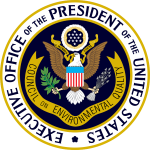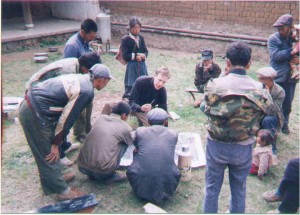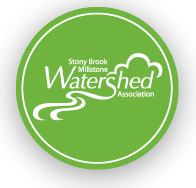 Building Product and Company Ratings: GoodGuide.com
Building Product and Company Ratings: GoodGuide.com
I took a year off from my PhD program to co-found a new social venture startup with a professor in my department, Dara O’Rourke, and several other colleagues at Cal. The startup, GoodGuide.com, grew out of research we had been doing for the past several years, and provides information to consumers about the social, health, and environmental performance of products and companies. I was responsible for identifying, acquiring, and organizing data from a range of government agencies, non-profit organizations, and for-profit research firms, which we then aggregated into product and company ratings. This work deepened my knowledge of the data available on these topics, their related data gaps, and the technical, philosophical, and scientific challenges in building comprehensive performance ratings. I was also closely involved with the day-to-day operations and strategic planning of the company.
 Studying Stakeholder Engagement: The White House Council on Environmental Quality
Studying Stakeholder Engagement: The White House Council on Environmental Quality
Before starting my PhD program Berkeley, I completed a Masters of Public Policy at the Harvard Kennedy School. For my masters thesis, I worked with the White House Council on Environmental Quality on investigating stakeholder engagement in the development of national environmental indicators in five case studies — three Roundtables on forests, water, and rangelands coordinated by various federal agencies, the Environmental Protection Agency’s State of the Nation’s Environment report, and the Heinz Center’s State of the Nation’s Ecosystems process. The final version was published as a Kennedy School Working Paper, which you can access here.
 Measuring Ecological Health: Internship at Resources for the Future
Measuring Ecological Health: Internship at Resources for the Future
While at the Kennedy School, I did an internship at Resources for the Future in Washington, DC., where I researched the use of different scientific methods to measure “ecological health” or “integrity” by different federal agencies, from the Army Corps of Engineers to Environmental Protection Agency to the Fish and Wildlife Service. This work demonstrated to me the active role that values and politics can often play, both explicitly and implicitly, in scientific processes, and the importance for all of us to better understand these dynamics.
 Encouraging Green Tourism and a Green China: Three Years with The Nature Conservancy
Encouraging Green Tourism and a Green China: Three Years with The Nature Conservancy
My time in Boston was preceded by three years working in China for The Nature Conservancy, where I initiated and directed the Conservancy’s Ecotourism Program there. We helped several local communities setup an eco-lodge and an ecotourism company (see northwestyunnan.com and ecotourism.com.cn to learn more), and worked with government agencies on managing tourism more sustainably in Yunnan Province. The experience exposed me to the many challenges of sustainable development, and the local successes that villagers, government officials, and non-profit staff can achieve when they work effectively together. I published two articles on our work in China, and Outside magazine and the New York Times have written about the eco-lodge as well.
 Assessing Ecotourism: Senior Thesis at Princeton University
Assessing Ecotourism: Senior Thesis at Princeton University
Working for TNC in China was a natural step from my undergraduate work at Princeton, where I wrote my senior thesis on nine case studies of ecotourism sites in China. I spent a summer in China visiting these sites, which were in both nature reserves and local villages, and assessing their economic and ecological impacts. I developed a resource-based framework for my assessments, and found that different types of ecotourism sites present difficult cost-benefit tradeoffs.
 Certifying Green Townships: The Stony Brook-Millstone Watershed Association
Certifying Green Townships: The Stony Brook-Millstone Watershed Association
Between Princeton and China, I spent a summer working at a local watershed organization in central New Jersey called the Stony Brook-Millstone Watershed Association. While I helped out with their environmental education programs and water quality assessment efforts, my primary project was to design a program that would certify townships within the watershed as “River Friendly.” I researched environmental ordinances and programs that were being implemented across the state, and used them as the basis of a township rating system. This work, which evolved into the Association’s current River Friendly Program that now includes residents and golf courses, revealed to me the scientific and political complexities of measuring the environmental performance of organizations, both in terms of what to measure and how to measure it.
![]() Identifying Green Utilities: The Edison Electric Institute
Identifying Green Utilities: The Edison Electric Institute
While at Princeton, I also spent a summer as an intern at the Edison Electric Institute, which represents investor-owned utilities in Washington, DC. I worked for the International Utility Efficiency Partnerships (IUEP), which was one of the earliest voluntary efforts of the industry to respond to the climate issue. We developed a Request for Proposals (RFP) for projects for utilities to invest in under the “Joint Implementation” program of the Conference of the Parties (COP) process, and reviewed proposals that came in from around the world. The experience was great exposure to environmental challenges in the energy sector and the operational “nuts and bolts” of voluntary market-based environmental initiatives.